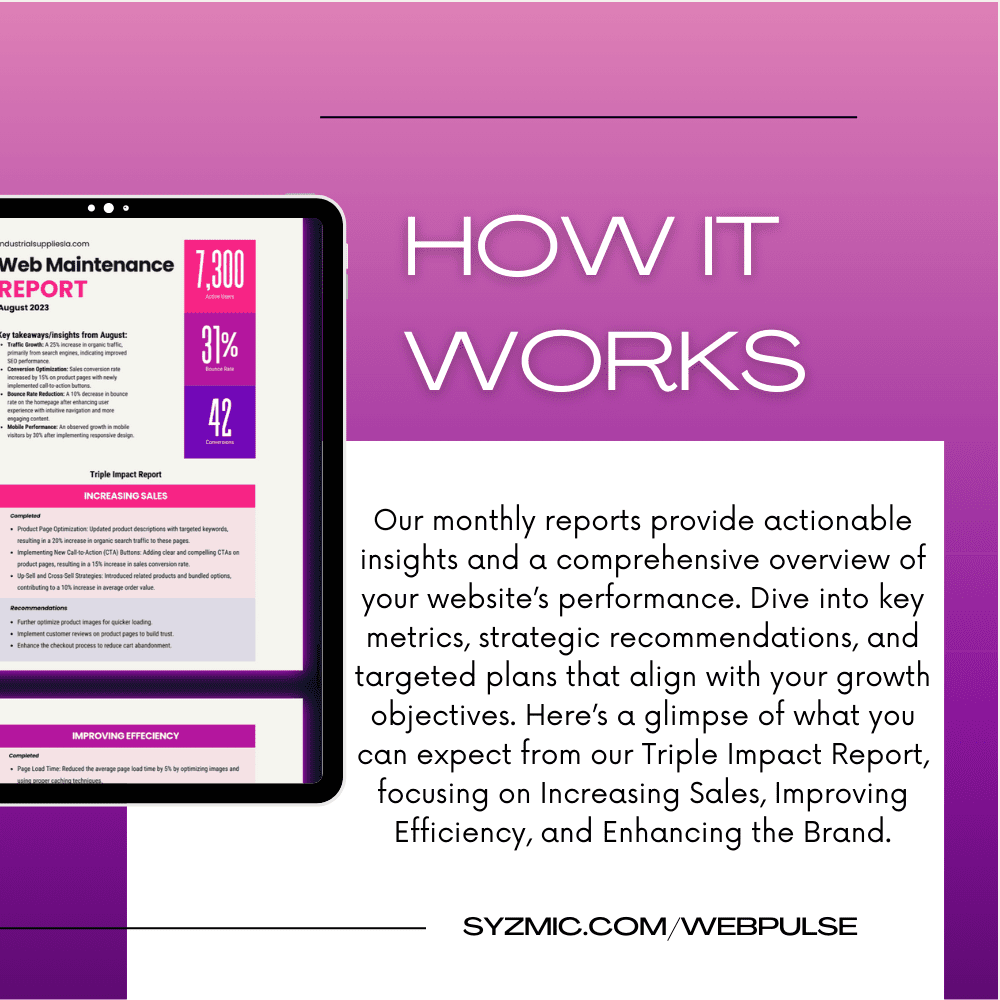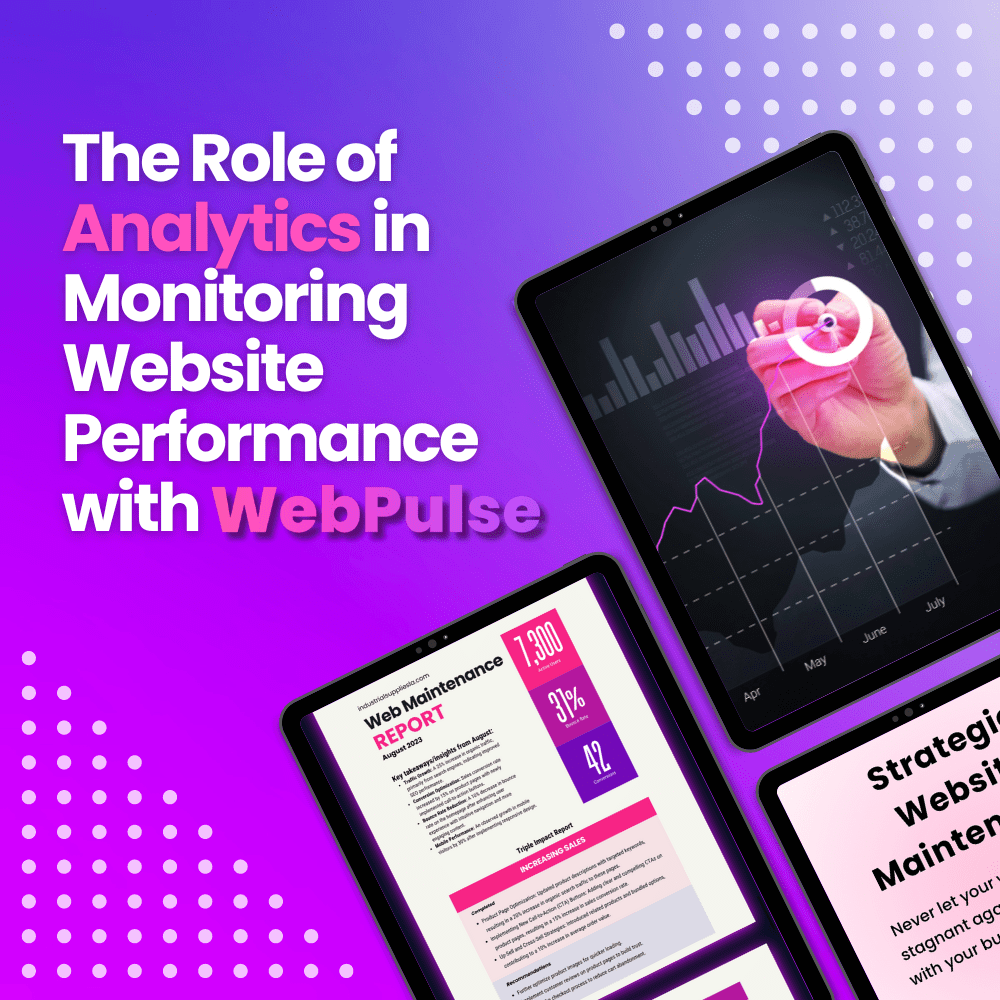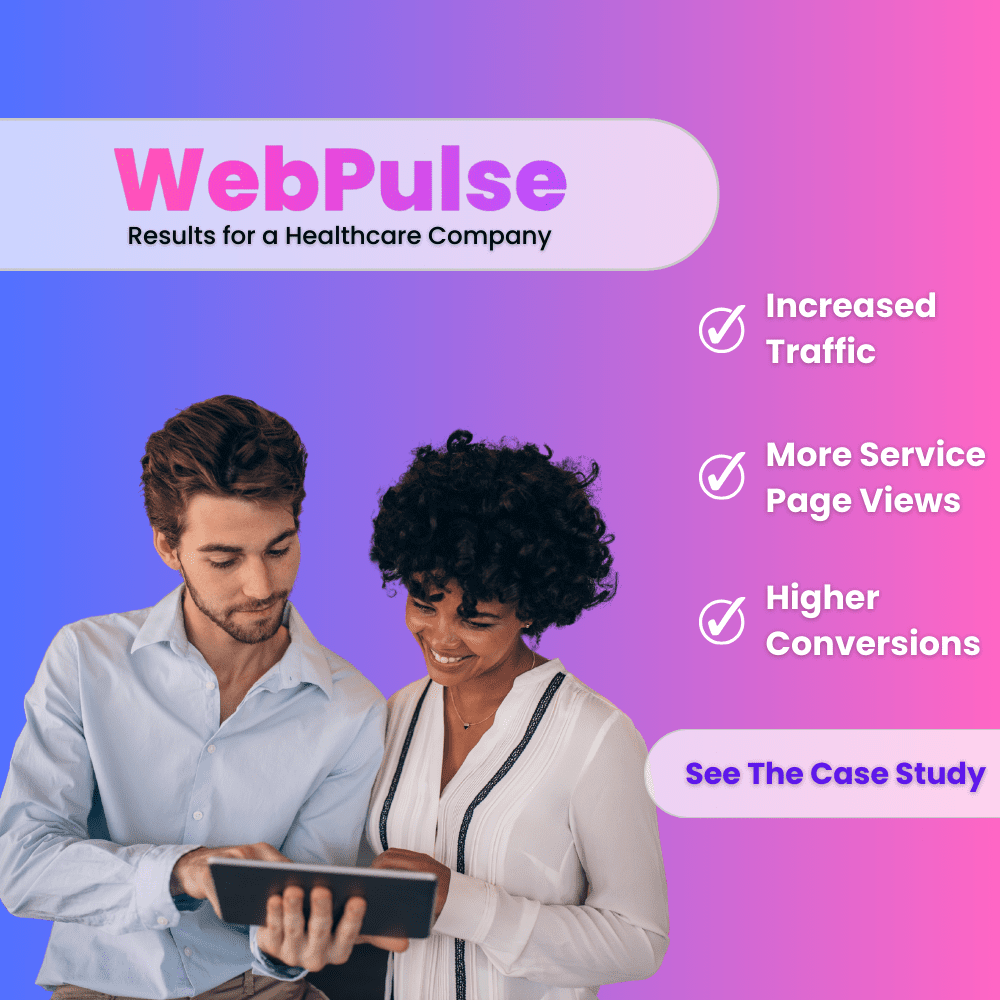In today’s competitive digital landscape, a website’s performance is vital to its success. A well-designed and user-friendly website is of little use if it doesn’t reach its intended audience or fails to engage visitors effectively. This is where website analytics come into play. Analytics provide valuable insights into how your website is performing, helping you make informed decisions to enhance user experience, increase conversions, and ultimately achieve your business goals.


Understanding Website Analytics
Website analytics involves the collection, analysis, and interpretation of data related to website usage. It encompasses a wide range of metrics that provide a comprehensive view of how visitors interact with your site. Here are some key aspects of website analytics:
1. Traffic Sources
Analytics tools track where your visitors come from. This includes organic search, paid search, social media, referrals from other websites, and direct traffic. Understanding these sources helps you apply resources effectively and optimize your marketing efforts.
2. Visitor Behavior
Analyzing user behavior provides crucial insights into how people navigate your site. This includes the pages they visit, the duration of their visit, and the actions they take (such as filling out forms or making purchases). Knowing this information allows you to identify popular content and areas that may need improvement.
3. Bounce Rate
The bounce rate indicates the percentage of visitors who leave your site after viewing only one page. A high bounce rate could signal issues with page content, user experience, or site speed. Analyzing this metric can help you pinpoint areas for improvement.
4. Conversion Rate
This metric measures the percentage of visitors who complete a desired action, such as making a purchase, signing up for a newsletter, or filling out a contact form. Monitoring conversion rates is crucial for assessing the effectiveness of your calls-to-action and forms.
5. Page Load Time
A slow-loading website can lead to high bounce rates and poor user experience. Analytics tools provide data on page load times, allowing you to identify performance holdups.
6. Device and Browser Insights
Knowing which devices and browsers your visitors use enables you to optimize your website for different platforms. This is crucial in an era where users access websites from a wide range of devices, including desktops, tablets, and mobile phones.


The Benefits of Website Analytics
Effective use of website analytics offers numerous advantages such as:
1. Data-Driven Decision Making
Analytics provide objective data to guide your decisions. By basing your strategies on real user behavior, you can apply resources more effectively and implement changes that have a direct impact on user satisfaction and conversions.
2. Improved User Experience
Understanding how users interact with your site helps you identify pain points and areas for improvement. By addressing these issues, you can create a more user-friendly experience that keeps visitors engaged and encourages them to explore further.
3. Optimized Marketing Efforts
Analyzing traffic sources allows you to identify which channels are driving the most visitors to your site. This information is critical for optimizing your marketing campaigns and applying budget to the most effective channels.
4. Enhanced Content Strategy
Analyzing popular pages and content can shape your content strategy. It helps you understand what resonates with your audience, allowing you to create more of the content that drives engagement and conversions.
5. Continuous Improvement
Regular monitoring of analytics data provides a feedback loop for ongoing improvement. By identifying trends and patterns, you can make gradual changes that lead to steady progress over time.
Choosing the Right Analytics Tools
Selecting the right analytics tools is crucial for obtaining accurate data. Google Analytics is one of the most popular and powerful options, offering a wide range of features for tracking and analyzing website performance. Additionally, there are specialized tools available for specific purposes, such as heatmaps and A/B testing platforms.
If reading analytics and keeping your website up to date is a bit overwhelming, we get it. This is why Syzmic created WebPulse. If you are interested in a stress-free way to keep your site growing with your business, here is what you can expect with WebPulse:
- Expert Consultation
You’ll meet with a website expert to pinpoint improvement areas. Here’s what you can expect:
- Discuss ways your website could improve sales and ramp up business growth
- Explore how your website can improve workflow efficiency
- Vision cast what you want your brand to be
02. Benchmark & Audit
After your meeting with our experts you’ll recieve your FREE WEBSITE AUDIT and assessment. Here’s what you can expect:
- A numerical score on the overall site health with sub-scores in each category: sales, efficiency, and brand value
- Your first Pulse Report outlining specific ways we can achieve your goals
- Your monthly game plan outlining the work that will be completed in the first 30 days
03. Monthly Optimization
Let WebPulse make a strategic impact! Each month, you’ll receive insightful analytics and dedicated optimization work, ensuring that your site never lags behind.
04. Six-Month Review
And repeat! Post six months, we’ll re-evlaute your website scores and ensure that progress is being made. Your website remains resilient, always updated, and continuously optimized for performance.


Conclusion
In today’s competitive online landscape, monitoring website performance is a critical aspect of maintaining a successful online presence. Analytics provide the data and insights you need to make informed decisions, optimize user experience, and achieve your business objectives. By leveraging the power of website analytics, you can ensure that your website remains a valuable asset that effectively serves your audience and drives your business forward.








0 Comments